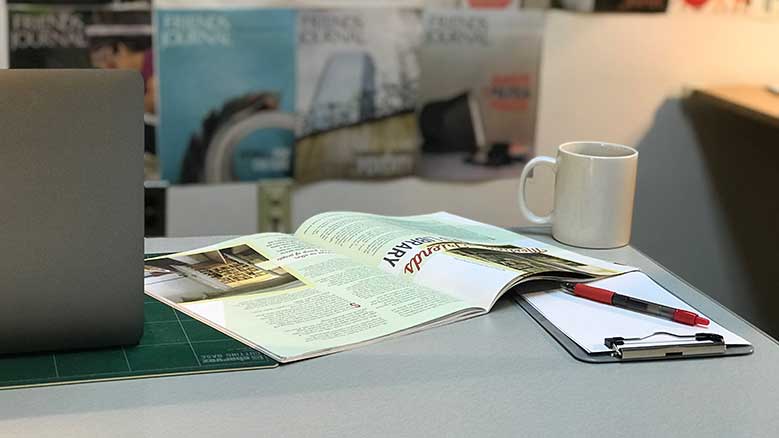Fast Facts
- Features run 1200-2500 words (General information)
- Submissions close October 22, 2024 (Ready? Submit here)
- Questions? Email editors@friendsjournal.org
If there’s one topic we can simultaneously talk about both too little and too much, it’s money. This is as true for Quaker meetings as it is for families. Our January 2025 issue opens the floor for discussion on “How Meetings Use Money.” (Friends Journal last considered this theme six years ago for our October 2018 issue, before the pandemic turned the economy on its head and forever changed the landscape of employment.) There are many angles that Friends could discuss. We’ve brainstormed some ideas—but feel free to surprise us with your own take on the topic!
Where does our money come from?
A lot of Quaker wealth is locked up in endowments started by “dead Quaker money”—wealth bequeathed by Quakers of centuries past. What responsibilities do we have to their original donors or the people they may have exploited? Friends benefited from Indigenous land displacement, a century of slavery, and the labor of workers in the industrial revolution. Later Quaker enterprises have been augmented by capital from these initial wealth sources.
How are we researching, honoring, and acknowledging these debts? What kind of forensic accounting can we do to understand the myriad sources of our inherited wealth?
How do we support our meeting?
Quaker wealth continues to change in the twenty-first century. Most of the well-known historic Quaker businesses have been bought and sold over, and there are fewer truly wealthy Quaker families. Many Friends today work in service or knowledge fields. How have these changes affected the finances of our denomination and the ability to live out our values in the workplace? As individuals and families, how do we decide how much to donate to to our Friends meeting or church and how do we balance that out with other donations?
How do we support our members?
There’s sometimes an assumption that Quakers are all financially secure and well-off, but that’s often not the case and it can shift throughout a lifetime. Rising inflation rates in many countries are squeezing bank accounts and the high costs of childcare in the United States are forcing families to change how they work. Many long-term trends were accelerated by COVID and lockdown. Manufacturing has continued to move overseas. Many once-stable jobs have been replaced by part-time, subcontracted employment with little security, even in academia. The rise of the so-called gig economy (typified by uber and doordash) and the proliferation of warehouse jobs (such as Amazon) employ millions at low salaries, often seasonally. Many Friends have been affected by these changes.
How do we look out for and support people in our community who are struggling financially? Do we even notice their distress in our assumptions? Do we help with food, clothing, or money to help bridge over rent or mortgage payments? How can we ensure that financially strapped Friends are invited to Quaker events with costs?
Where does the money go?
An activist Friend of mine used to point to the nice furnishings in our meetinghouse and chuckle about how many good things we could fund in the community if we sold some of it off. Has your meeting liquidated any of its property or longstanding endowments for community service or for reparations of historic injustices?
It’s sometimes said budgets reflect an organization’s deepest values. Do meeting budgets reflect that? When we do find ourselves with extra funds from a bequest or windfall, where do we spend it? How do we balance needs for our meeting community (building upkeep and repair, scholarships for Friends), and when and how do we give it to others in our community? Where do we invest our corporate savings? Who decides how we spend money in our meetings? What kind of ministries are we supporting? What can we let go of?
There are a lot of meetinghouses mostly empty these days, perhaps even more so after the pandemic pushed many to move to virtual or hybrid worship. Could we ever decide we don’t need all of these spaces? Or could we go further and sell our properties and start meeting at a rented space like a firehall or library once a week? How do we decide on the best use of our financial resources?
Submit: How Meetings Use Money
Other upcoming issues:
- Spiritual Optimism vs. Pessimism (December issue, due Sept. 16)
- February Open Issue (due Nov. 18)
- Neurodiversity (March issue, due Dec. 16)
Learn more general information at Friendsjournal.org/submissions.




Comments on Friendsjournal.org may be used in the Forum of the print magazine and may be edited for length and clarity.